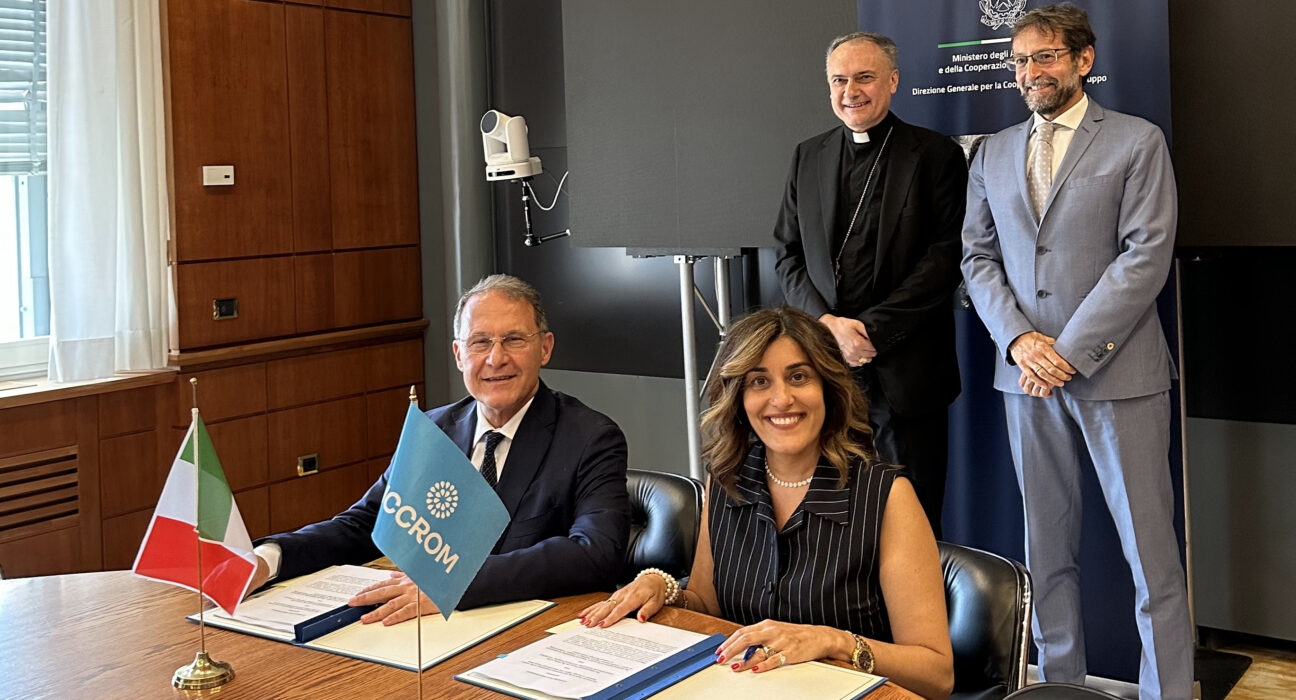A landmark partnership between the Italian Government, ICCROM, and the Fabbrica di San Pietro in the Vatican is set to breathe new life into Africa’s cultural heritage sector through a transformative €6 million programme aimed at training and empowering young artisans in Kenya, Côte d’Ivoire, Egypt, and Tunisia.
The agreement, signed by Aruna Francesca Maria Gujral, Director-General of ICCROM (International Centre for the Study of the Preservation and Restoration of Cultural Property), and Edmondo Cirielli, Italian Deputy Minister of Foreign Affairs and International Cooperation, signals the start of a three-year initiative that places Africa’s rich cultural legacy at the heart of sustainable development.
Backed by Italy’s Directorate General for Development Cooperation, this initiative will train 540 young artisans in its initial phase, focusing on traditional restoration techniques and heritage conservation skills, while fostering economic empowerment and long-term career pathways in the cultural sector.
Kenya, with its deep and diverse heritage — from Swahili architecture on the coast to inland archaeological wonders — is a key focus country for the programme. Kenyan youth participating in the initiative will gain access to advanced conservation training rooted in Vatican expertise, thanks to the involvement of the Fabbrica di San Pietro, the centuries-old institution responsible for the maintenance of St. Peter’s Basilica.
Participants will also engage in Train-the-Trainer programmes, allowing them to multiply impact within their own communities and elevate the professional standards of craft and conservation sectors nationwide.
“Cultural heritage, when placed in the hands of communities, fosters identity, cohesion, and dialogue — especially among youth,” said ICCROM Director-General Aruna Gujral. “This programme is about more than skills. It’s a strategic investment in human capital, cultural pride, and future livelihoods.”
Key Features of the Programme
- €6 million investment by the Italian Government
- Initial training cohort: 540 young artisans in Kenya, Côte d’Ivoire, Egypt, and Tunisia
- Implemented in collaboration with:
- ICCROM
- Italian Ministry of Foreign Affairs and International Cooperation
- Fabbrica di San Pietro in the Vatican
- Focus areas:
- Traditional artisan skills
- Monumental restoration
- Cultural site conservation
- Craft entrepreneurship
- Training-of-Trainers model to ensure long-term, scalable impact
This heritage-focused programme aligns with Italy’s Mattei Plan for Africa, a framework that seeks to build fair and mutually beneficial partnerships across the continent. It reflects a broader geopolitical strategy in which Italy positions itself as a key partner in Africa’s development through culture, education, energy, and trade.
“Investing in craft training and cultural heritage conservation means promoting sustainable development and creating tangible opportunities for young people,” said Deputy Minister Edmondo Cirielli. “This agreement strengthens knowledge transfer and supports African countries in preserving their heritage while building a stronger economic base.”
The signing ceremony was honoured by the presence of Cardinal Mauro Gambetti, President of the Fabbrica di San Pietro, who delivered a blessing and acknowledged the programme’s potential to bridge history, craftsmanship, and spiritual legacy.
The Fabbrica di San Pietro brings to the programme its renowned technical and historical expertise in conserving some of the world’s most iconic religious and cultural sites. This partnership marks a rare and valuable transfer of knowledge from one of the oldest heritage institutions in the world to African youth who will carry their own traditions forward.
ICCROM emphasized that this programme is not simply about technical training, but about creating transformational change by linking cultural preservation with socio-economic development. Through this, African artisans will gain globally relevant skills while strengthening local pride and cultural identity.
The project also supports formalization of craft professions, creating a clear pathway from informal artisan work to recognized, regulated careers, with certification and market access.
In Kenya, the programme is expected to:
- Partner with local heritage institutions and vocational training centers
- Recruit youth from underrepresented communities, including coastal regions, Maasai territories, and historical urban hubs
- Offer hands-on conservation work at heritage sites
- Foster international collaborations through ICCROM’s network





